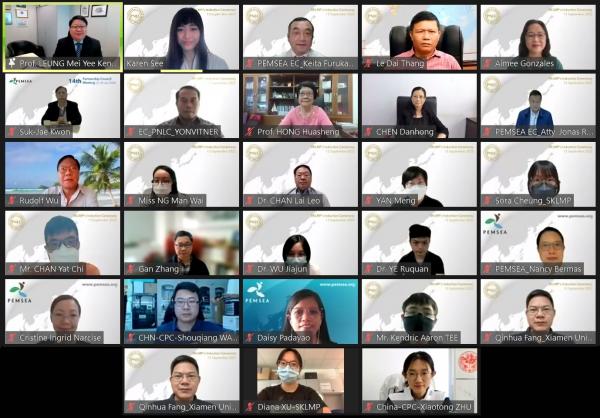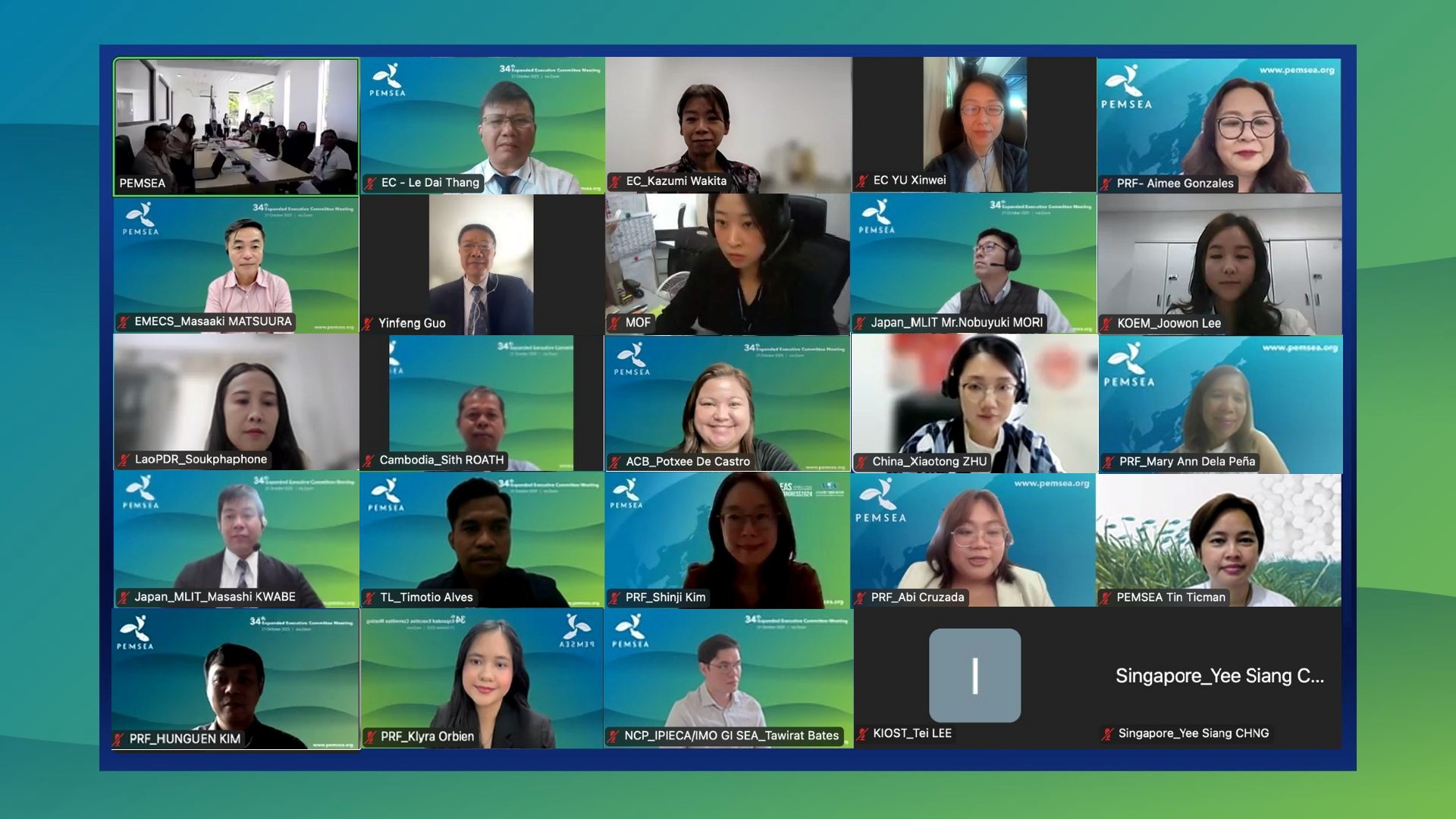Induction ceremony for the redesignation of SKLMP as a Regional Center of Excellence
Wednesday, 14 September 2022

On September 13, Partnerships in Environmental Management for the Seas of East Asia held a virtual ceremony to induct the State Key Laboratory of Marine Pollution (SKLMP) consortium as a member of the PEMSEA Network of Learning Centers (PNLC). The induction ceremony was held after SKLMP’s redesignation as a PEMSEA Regional Center of Excellence (RCOE) in Marine Pollution during the 14th East Asian Seas Partnership Council Meeting dated July 27, 2022. The ceremony was attended by PEMSEA’s Executive Committee, PNLC officers, and the PEMSEA Resource Facility staff.
Cooperation between PEMSEA and SKLMP started in 2004 through joint marine pollution actions and knowledge exchange. The partnership was eventually formalized in 2008 when the consortium, which was still known as the Centre for Marine Environmental Research and Innovative Technology (MERIT) at the time, was designated as the first RCOE due to its expertise and experience on marine pollution management. MERIT specialized in research, innovation, and capacity building, specifically in providing training and technical support on marine pollution.
One notable example of regional cooperation is the Centre’s collaboration with the Marine Science Institute of the University of the Philippines, another RCOE, on the application of artificial mussel technology for heavy metal monitoring in Manila Bay, Philippines. It also organized a training course on contaminant analysis and risk assessment in the marine environment, which resulted in a joint research undertaking between MERIT and Burapha University (Thailand) concerning the application of artificial mussels for heavy metal monitoring in Bangsaen Beach in Saensuk Municipality, Thailand. Multi-million funding was also awarded to the Batangas Environmental Laboratory in the Philippines for upgrading the laboratory as a result of the application of knowledge gained from MERIT.
When MERIT funding ended in 2010, the SKLMP consortium was created led by the City University of Hong Kong. With over 40 cross-disciplinary researchers from eight partner universities in Hong Kong SAR, SKLMP is dedicated to developing multidisciplinary and innovative solutions to address marine pollution problems that pose a significant threat to the environment and public health. It works on themes such as eco-safety and environmental risk assessment, ecosystem responses and ecological restoration, and innovative technology for pollution monitoring and control.
The induction ceremony featured the signing of the PNLC Charter by Prof. Kenneth Leung, the Director of SKLMP and Acting Head and Chair Professor of City U’s Department of Chemistry.

Welcoming the Charter signing, the Executive Director of PRF, Ms. Aimee Gonzales, stated that “SKLMP’s engagement is a wonderful addition to solidifying the programmatic elements of training and capacity development of PNLC, which, in turn, is an important contribution to operationalizing several components of the Implementation Plan of the Sustainable Development Strategy for the Seas of East Asia.”
On behalf of SKLMP, Prof. Leung commits to continue the consortium’s longstanding cooperation with the PRF, PEMSEA partners, and PNLC members. It already has a longstanding relationship with the Coastal and Ocean Marine Institute (COMI) of Xiamen University (China), another RCOE. He highlighted the Global Estuaries Monitoring (GEM) Programme of SKLMP, which is one of the endorsed initiatives of the UN Decade of Ocean Science.
A draft SKLMP-PEMSEA plan will be refined in the coming months. SKLMP can help translate science into policy and management actions in support of the region’s efforts to pursue its vision of a healthy ocean, people, and economies, particularly in relation to fisheries management, biodiversity conservation, habitat mapping and restoration, and pollution assessment, monitoring and control. PRF welcomes their continued cooperation, and looks forward to continued partnership towards more sustainable shared seas.



